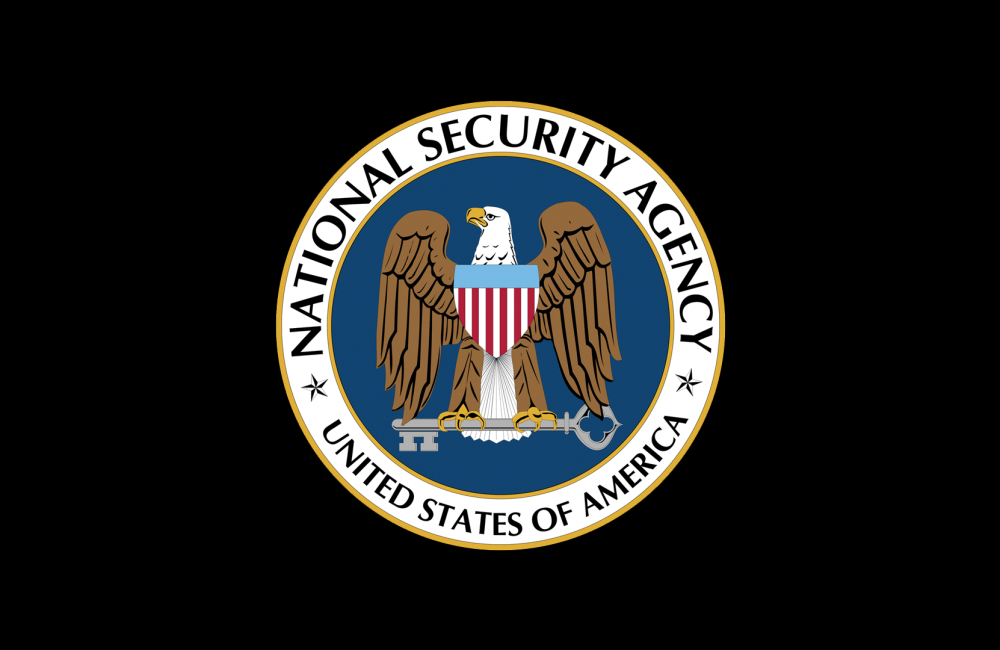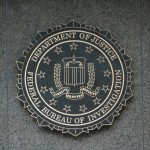The National Security Agency (NSA) is one of the most secretive and powerful intelligence organizations in the world, often shrouded in mystery and intrigue. While many people have heard of the NSA, few truly understand its operations, functions, and significance in safeguarding U.S. national security. Established in 1952, the NSA primarily focuses on signals intelligence (SIGINT), which involves the collection and analysis of information from electronic communications. This makes it a key player in not only tracking foreign adversaries but also defending U.S. interests in an increasingly digital world.
In an era where cyber threats and global conflicts are at the forefront of national security concerns, the NSA’s role has evolved significantly. From intercepting foreign communications to securing the nation against cyberattacks, the agency is tasked with a broad range of responsibilities. However, its operations have not been without controversy, especially regarding privacy rights and government overreach.
In this article, we will delve into the multifaceted world of the NSA, exploring its history, key functions, methods of operation, and the challenges it faces. By the end, you’ll have a comprehensive understanding of what the NSA does and how it impacts both national and global security.
1. Origins and Purpose of the NSA
Historical Background
The NSA was established during the early years of the Cold War, a time when the United States recognized the need for a dedicated agency to collect and analyze foreign communications. Formed on November 4, 1952, by President Harry S. Truman, the NSA was created to consolidate various intelligence functions that were previously handled by military and civilian organizations. This move was largely in response to the rapid advancements in technology and the increasing importance of signals intelligence in modern warfare.
The NSA’s initial focus was on intercepting and decoding foreign communications, particularly those of the Soviet Union and its allies. During the early years of its operation, the agency utilized a range of technologies, including radio intercepts and early forms of electronic surveillance, to gather intelligence on potential threats to U.S. national security.
Primary Purpose
The NSA’s primary mission is to collect and analyze signals intelligence (SIGINT) for the purpose of protecting U.S. national security. Its functions can be summarized as follows:
- Foreign Intelligence Collection: The NSA is responsible for gathering intelligence from foreign sources, including governments, military forces, and terrorist organizations. This involves monitoring communications, data transmissions, and electronic signals to identify potential threats.
- Counterintelligence: The agency works to protect U.S. interests from foreign intelligence operations aimed at infiltrating or compromising U.S. government agencies. This involves identifying and neutralizing threats posed by foreign spies and hostile actors.
- Cybersecurity: As the digital landscape evolves, the NSA plays a crucial role in protecting U.S. government networks and critical infrastructure from cyberattacks. This includes defending against hacking attempts and cyber espionage.
- Cryptography and Codebreaking: The NSA is responsible for developing secure communication methods for U.S. government agencies while also working to break foreign encryption and codes to gather intelligence.
2. Key Functions of the NSA
The NSA has several key roles that it plays within the U.S. intelligence community. These functions encompass intelligence collection, analysis, and operational support.
Signals Intelligence (SIGINT)
Signals intelligence (SIGINT) is at the heart of the NSA’s operations. This involves the interception, collection, and analysis of electronic communications to gain insight into foreign activities. SIGINT can be broken down into two main categories:
- Communications Intelligence (COMINT): This refers to the interception and analysis of communications between individuals, organizations, or governments. The NSA monitors various forms of communication, such as phone calls, emails, and satellite transmissions, to gather intelligence about foreign adversaries. COMINT is crucial for understanding the intentions and capabilities of foreign governments and terrorist organizations.
- Electronic Intelligence (ELINT): ELINT focuses on the analysis of non-communication electronic signals, such as radar emissions and signals from military equipment. By monitoring these signals, the NSA can gather valuable information about foreign military capabilities and technological advancements.
To collect SIGINT, the NSA employs a variety of sophisticated technologies and methods, including satellite surveillance, ground-based interception systems, and advanced data analysis tools. The agency utilizes both overt and covert methods to gather intelligence, often in partnership with other intelligence agencies and foreign partners.
Cybersecurity and Cyber Operations
In recent years, the NSA has increasingly focused on cybersecurity, as the digital landscape has become a significant battleground for national security. The agency is responsible for protecting U.S. government communications and information systems from cyber threats, including hacking, espionage, and attacks on critical infrastructure.
The NSA operates a division known as the Cybersecurity Directorate, which is tasked with defending against cyberattacks and securing U.S. networks. This includes monitoring for threats, analyzing vulnerabilities, and providing guidance on best practices for cybersecurity.
In addition to defensive operations, the NSA is also involved in offensive cyber operations. This includes conducting cyberattacks against foreign adversaries to disrupt their capabilities and protect U.S. interests. The agency collaborates closely with other organizations, such as the Department of Defense and Cyber Command, to coordinate cyber operations.
Cryptography and Codebreaking
One of the NSA’s foundational missions has been cryptography—the science of secure communication. The agency develops encryption technologies to protect sensitive U.S. government communications while also working to break the codes used by foreign adversaries.
The NSA employs some of the world’s leading cryptographers and mathematicians to create secure communication protocols for various U.S. government entities. This work is critical for safeguarding national security communications, military operations, and intelligence reporting.
In addition to developing secure systems, the NSA also engages in codebreaking efforts to intercept and decipher foreign communications. This capability has historically provided the U.S. government with valuable intelligence regarding adversaries’ plans, military movements, and diplomatic strategies.
3. NSA’s Role in U.S. Foreign Policy and National Defense
Supporting U.S. Diplomacy
The intelligence collected and analyzed by the NSA is vital for shaping U.S. foreign policy. By providing key insights into foreign governments, military capabilities, and emerging threats, the NSA enables U.S. policymakers and diplomats to make informed decisions.
The agency’s intelligence informs a range of diplomatic efforts, including negotiations, alliances, and international agreements. For instance, understanding the motivations and intentions of foreign leaders can help U.S. diplomats craft effective strategies for negotiation and conflict resolution.
Military Support
The NSA plays a crucial role in supporting U.S. military operations by providing timely and accurate intelligence. During military campaigns, the agency gathers information on enemy movements, capabilities, and communication patterns, which is essential for planning and executing military actions.
For example, during operations in Iraq and Afghanistan, the NSA provided intelligence support that informed battlefield decisions, targeted airstrikes, and troop deployments. The agency’s ability to intercept and analyze enemy communications has proven invaluable in counterinsurgency operations and identifying high-value targets.
Counterterrorism Efforts
Since the events of September 11, 2001, the NSA has intensified its focus on counterterrorism. The agency plays a critical role in identifying and tracking terrorist networks, gathering intelligence on their communications, and assessing potential threats to the U.S. and its allies.
The NSA’s SIGINT capabilities enable it to monitor the communications of suspected terrorists, both domestically and abroad. By analyzing patterns of communication, the agency can help identify plots and thwart attacks before they occur.
Cyber Warfare and Defense
The NSA’s role in cybersecurity has become increasingly important as cyber threats continue to evolve. The agency monitors foreign cyber activities to detect potential threats and gather intelligence on adversaries’ capabilities and intentions.
In the realm of cyber warfare, the NSA collaborates with the Department of Defense to conduct offensive operations aimed at disrupting or degrading the capabilities of foreign adversaries. These operations can include cyberattacks on military networks, infrastructure, or communication systems to gain a strategic advantage.
4. Controversies and Ethical Concerns
Mass Surveillance Practices
One of the most significant controversies surrounding the NSA is its mass surveillance practices. In the wake of the 9/11 attacks, the agency expanded its intelligence-gathering efforts to include the collection of vast amounts of data from domestic and foreign communications. This included the controversial collection of phone metadata and internet communications.
The revelations made by former NSA contractor Edward Snowden in 2013 exposed the extent of the agency’s surveillance activities and sparked widespread public outrage. Documents released by Snowden indicated that the NSA had been collecting phone records of millions of Americans without their knowledge or consent. This led to a national debate over privacy rights and the balance between national security and civil liberties.
Privacy Concerns
The NSA’s surveillance practices have raised significant concerns about individual privacy. Critics argue that mass data collection violates the Fourth Amendment, which protects against unreasonable searches and seizures. The lack of transparency surrounding these practices has further fueled public distrust of government institutions.
In response to growing concerns, the U.S. government has implemented reforms aimed at improving oversight of the NSA’s activities. The USA Freedom Act, passed in 2015, sought to limit the NSA’s data collection efforts and enhance transparency. However, debates about the appropriate balance between national security and individual privacy continue to be contentious.
Accountability and Oversight
The NSA operates in a highly secretive environment, which raises questions about accountability and oversight. While the agency is subject to congressional oversight and operates under legal guidelines, much of its work remains classified. This lack of transparency makes it challenging for the public and even other branches of government to scrutinize the agency’s actions.
To address concerns about oversight, the NSA has established mechanisms for compliance and review. This includes internal oversight bodies that monitor the agency’s activities to ensure they adhere to legal and ethical standards. However, critics argue that these mechanisms may not be sufficient to prevent potential abuses of power.
5. The Future of the NSA
Adapting to New Threats
As technology continues to advance, the NSA faces new challenges and threats that require adaptation and innovation. Cybersecurity threats, in particular, are likely to remain a significant focus for the agency, as nation-state actors and criminal organizations increasingly exploit digital vulnerabilities.
To address these challenges, the NSA is investing in cutting-edge technologies, including artificial intelligence (AI) and machine learning. These advancements will enhance the agency’s ability to process and analyze vast amounts of data efficiently, enabling quicker responses to emerging threats.
Balancing Security and Privacy
As the NSA looks to the future, striking the right balance between national security and individual privacy will be crucial. Public sentiment about surveillance and privacy rights is shifting, and the agency must be mindful of the concerns raised by citizens, activists, and civil liberties organizations.
Efforts to improve transparency and accountability will be essential in maintaining public trust in the agency. As the government seeks to address security challenges in a rapidly changing world, the NSA will need to demonstrate that it can operate effectively while respecting the rights of individuals.
International Collaboration
The NSA will continue to collaborate with international partners to enhance global security and intelligence sharing. As cyber threats and geopolitical challenges become increasingly interconnected, cooperation with allied nations will be vital in addressing shared security concerns.
By strengthening partnerships with foreign intelligence agencies, the NSA can gain access to a broader range of intelligence and resources, improving its ability to respond to global threats. This collaboration will be essential for ensuring a comprehensive approach to national security in an interconnected world.
Conclusion
The National Security Agency (NSA) plays a pivotal role in protecting U.S. national security through its focus on signals intelligence, cybersecurity, and counterterrorism. Established during the early years of the Cold War, the NSA has evolved into a highly sophisticated intelligence organization, adapting to meet the challenges of a complex global landscape.
While the agency is essential for gathering intelligence and supporting U.S. military and diplomatic efforts, its operations have not been without controversy. Issues such as mass surveillance, privacy rights, and accountability have sparked significant debate about the balance between national security and civil liberties.
As technology continues to advance and the nature of threats evolves, the NSA’s role will remain crucial in ensuring the security of the nation. However, maintaining transparency, accountability, and respect for individual rights will be essential as the agency navigates the challenges of the digital age. By fostering a balance between security and privacy, the NSA can continue to protect U.S. interests while upholding the values that define American democracy.






